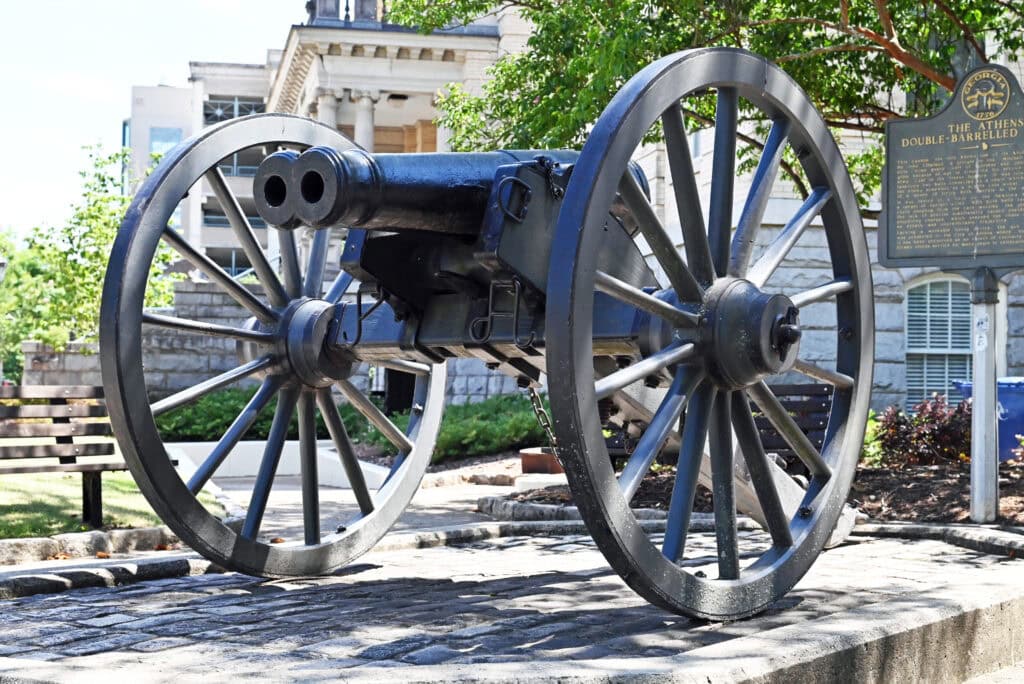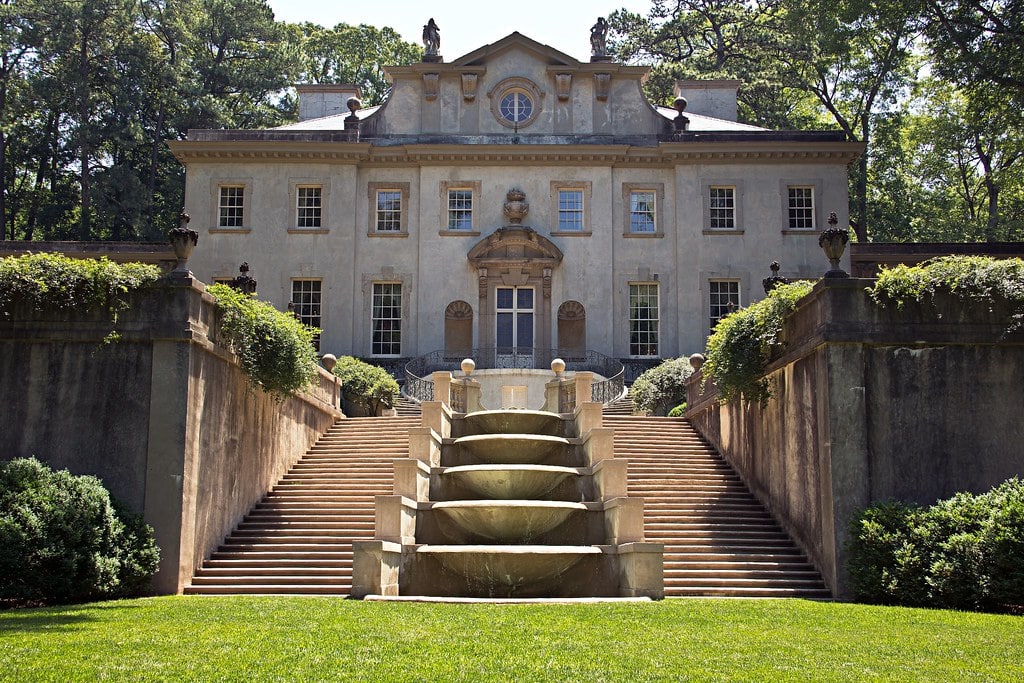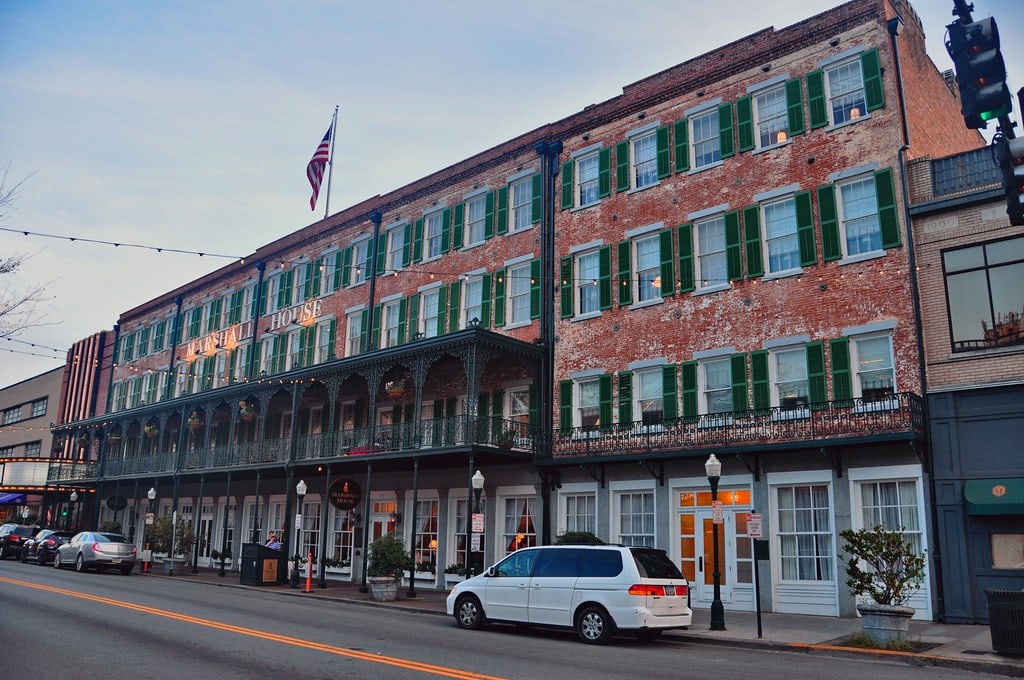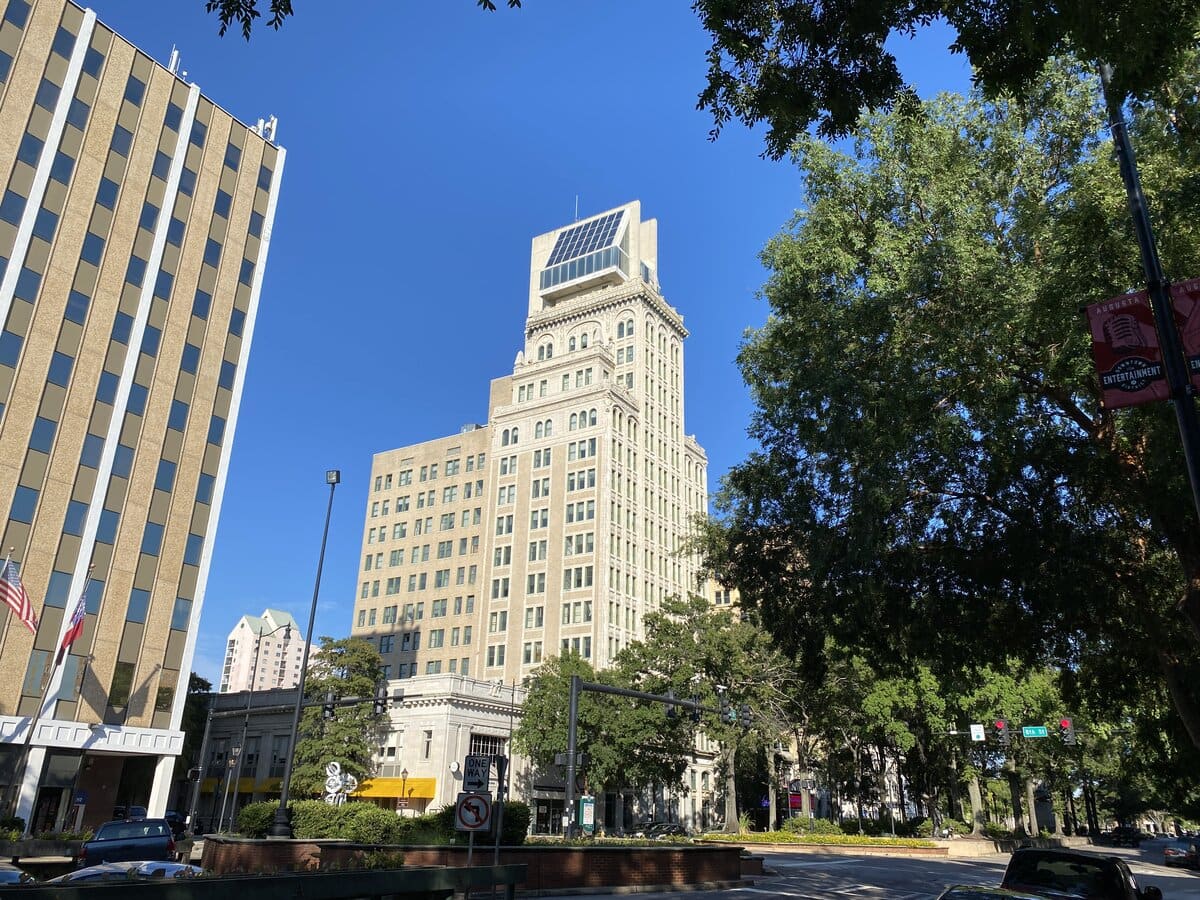You've seen the cannon in front of City Hall and probably walked past that oak tree on Finley Street without thinking twice. But did you know the tree legally owns itself? Or that it's still against the law to fling a slingshot downtown?
Athens, Georgia, has a long memory and a few secrets tucked into its ordinances, street corners, and music shops.
This list pulls together 12 facts that don't usually make it into the brochures: strange laws, forgotten firsts, and details even longtime locals miss.

The oak tree with its own legal deed
On the corner of Dearing and Finley Streets stands an oak tree that is said to own itself.
According to a widely circulated story, Colonel William H. Jackson legally deeded the original tree ownership of itself and the eight feet of land surrounding it sometime in the early 1800s.
The deed was never officially recorded, but the tradition stuck. The original tree fell in a storm in 1942.
In its place, local residents planted a new oak grown from one of its acorns.
Today, the second-generation tree stands on the same plot.
A stone marker explains the legend, and the city continues to treat the location as historically deeded to the tree.
The Civil War weapon that never left town
In the 1860s, John Gilleland of Athens designed a double-barreled cannon with a specific goal: to fire two cannonballs connected by a chain that would sweep across enemy lines.
The cannon was cast in Athens at a local foundry and tested in 1863. The test was a failure.
The cannonballs flew at different speeds, snapping the chain and causing chaos.
One ball damaged a cornfield, another reportedly hit a cow, and no military unit ever used the weapon.
The cannon remained in town and was eventually mounted on display in front of City Hall, where it still sits today as an odd example of Civil War-era invention gone awry.
It's illegal to use a slingshot downtown
In the official Athens-Clarke County Code of Ordinances, there is a law forbidding the use of a slingshot, or an "Alabama slingshot," within the urban service district, which includes most of downtown Athens.
The law appears in the section regulating offenses against public safety and was enacted in 1992.
It makes no distinction between toy slingshots and more powerful ones.
No specific historical incident is cited in the ordinance as the reason for the law, and there is no explanation provided by the city.
But the restriction remains enforceable and on the books. The law does not ban possession, only use within the designated district.
Giving away goldfish is against the law
Athens-Clarke County has a law that prohibits giving away live animals as prizes or incentives for promotional purposes.
That includes goldfish, reptiles, birds, and any other live creature. The rule applies to contests, games, and events such as bingo or raffles.
The ordinance is written broadly and does not specify when it was adopted.
Though rarely enforced today, the regulation is still listed in the county code.
The law appears to reflect animal welfare concerns, particularly the treatment of small animals used as entertainment prizes.
The first state-chartered university in the U.S.
The University of Georgia, located in Athens, was the first university in the United States to be chartered by a state government.
The Georgia General Assembly issued the charter on January 27, 1785, making it the official beginning of public higher education in the country.
Abraham Baldwin, a Yale graduate and Georgia delegate to the Constitutional Convention, drafted the charter and became the university's first president.
Though classes did not begin until 1801, the early charter date gives UGA a unique historical distinction.
The university's founding predates the establishment of the federal Department of Education and set a precedent for state-supported colleges across the U.S.
UGA once cheered on a goat mascot
In the early years of the University of Georgia athletics, the school did not always march under the banner of a bulldog.
Before adopting the bulldog, UGA students once rallied around a live goat as their mascot.
The goat made appearances at athletic events in the late nineteenth century.
The transition happened as the bulldog gradually took hold, seen as a symbol better aligned with tenacity and spirit, and by the early twentieth century, the goat was phased out entirely.
Today, the bulldog stands as the enduring emblem of UGA. Still, the goat remains a little-known footnote in the university's early traditions.
Athens hosted Georgia's first rail line
In 1833, Athens businessmen began construction on one of Georgia's first railroads.
By 1841, that line connected Athens to Augusta, and by 1845 it stretched all the way to what is now Atlanta.
This early infrastructure project marked a pivotal point in Athens's pre‑Civil War growth.
The railroad helped cement the city's role as a commercial and educational hub by linking the university town to major markets and other parts of the state.
These connections boosted the local economy and helped Athens emerge as one of Georgia's most important cities before the conflict of the 1860s.
The Athens Music Walk of Fame plays on sidewalks
In 2020, Athens opened the Music Walk of Fame, a public art installation honoring the city's influential music scene.
Two blocks downtown, along West Washington, Clayton, and Lumpkin streets, were transformed with guitar-pick-shaped plaques embedded in the sidewalks.
They commemorate notable artists and groups with ties to Athens, including R.E.M., The B‑52's, Pylon, Widespread Panic, Drive‑By Truckers, and others.
The Walk of Fame invites pedestrians to literally walk through the city's musical heritage.
It links Athens's rich indie-rock legacy with the everyday rhythm of downtown foot traffic.
Georgia's first aviator took flight here
Athens resident Ben Epps built and flew the first airplane in Georgia in 1907.
Working just four years after the Wright brothers, Epps constructed his own biplane in a small corner of Clarke County.
His experimental craft lifted off successfully in October of that year from a field just outside the city.
Although Epps remained relatively unknown outside the region, his flight demonstrated early Southern aeronautical ambition.
His achievement marks Athens as the site of Georgia's first homegrown aircraft experiment and a significant moment in the emergence of aviation in the southeastern United States.
The first garden club began here
Athens is recognized as the birthplace of America's earliest garden club.
In 1891, residents formed a group dedicated to nurturing community gardens on the University of Georgia's North Campus.
Their efforts led to the creation of the Founders Memorial Garden, a green space still maintained today next to Franklin College.
The garden reflects the club's early mission to beautify public spaces.
Although garden clubs emerged elsewhere later, this Athens-based organization is documented as the pioneering example of organized horticultural community activity in the United States.
A hockey team named after a local song
Athens hosted a new minor league hockey team in the Federal Prospects Hockey League, and fans chose the name "Athens Rock Lobsters." The name honored the city's musical heritage, specifically, the iconic Athens band The B‑52's and their hit single "Rock Lobster." The team plays in a new arena at the Classic Center complex, linking a sport not typically associated with the South to Athens's distinctive musical identity.
The band publicly supported the name choice, reinforcing the local roots of the franchise.
A store that helped fuel a music revolution
Wuxtry Records opened in Athens in March 1976 as a small shop selling and trading vinyl records, cassettes, and later comics.
Located at the corner of College Avenue and Clayton Street, it is the oldest continuously operating record store in Georgia.
Over the decades, it became a gathering place for musicians, hosting future members of R.E.M. and the B‑52's among its employees and patrons.
The store remains a fixture of Athens's music culture, known for its eclectic selections and deep ties to the creative community that defined the city's rise as a hub of alternative rock.









